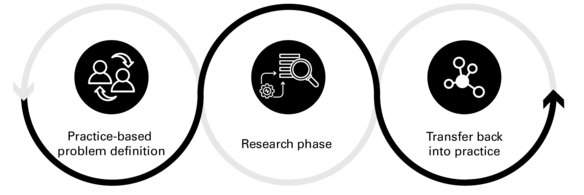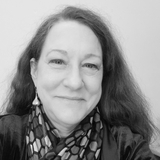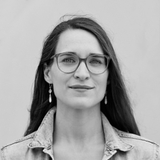Transfer | Making Science Effective
Traditionally, universities have been based on the duality of science and research. With the concept of research-led teaching, teaching activities are hybridised under the banner of ‘research transfer’. To make science effective, research designs and results need to be closer to society. The chair fulfils this goal through its specific understanding of research and science communication.
Science and Research Designs
In a first step, problems are framed by practitioners, researchers, and people affected by the problems. In a second step, those problems are examined scientifically, modelled and theorised in order to, in a third step, take their effect in practice in the form of a dispositif for reflection, models, or recommended actions, ultimately grounding problem-solving competences. These three steps as well as the close integration of theory and practice characterise the students’ projects as well as the chair’s research projects. The aim always is to solve real-world problems with scientific methods and to make science effective.

Science communication is key for the distribution of research results. Therefore, the chair frequently participates in national and international conferences, gives lectures, and strives for media coverage that reaches beyond the academic community. This is reflected in numerous interviews and reports on the chair’s research activities and results.
Media Coverage
With more than 100 interviews and reports, the chair’s research has received widespread media attention, e.g. in DIE ZEIT, FAZ, Süddeutsche Zeitung, New York Times, El País, Neue Zürcher Zeitung, DLF, Deutschlandradio, SWR, BR, NDR, ZDF, 3sat, France24 and many others.
Visiting Scholars & Cooperations
Regular Visiting Scholars
Constance DeVereaux is teaching at the University of Connecticut, USA, where she is head of the MFA-programme “Arts Leadership and Cultural Management.” She studied political philosophy, public policy and legal theory at the Claremont Graduate University, USA, where she did her PhD about the topic “Artist, Citizen, State: A Theory of Arts Policy”. As a Fulbright Senior Specialist she worked in the fields of cultural policy, cultural management and cultural development in South Africa, Romania and Finland as a consultant for the public sector and other organisations.
In addition to that DeVereaux is member of the international research cluster “UNESCO and the Making of Global Cultural Policy”, which is supported by the Australian Research Council. She is also a member of the Editorial Board of the Journal of Cultural Management: Arts, Policy, Economics, and Society. Her research interests lay in the field of Culturally Sustainable Entrepreneurship, cultural hybridity and the analysis of cultural policy narratives.
Constance DeVereaux is also a Visiting Professor at Zeppelin University

Anke Schad-Spindler has been doing international research and evaluation projects in the field of cultural policy since 2006. Prior to being self-employed, she has worked at EDUCULT – Institute of Cultural Policy and Cultural Management located at MuseumsQuartier Wien for ten years. In 2017, she completed her PhD on cultural governance at the University for Music and Performing Arts Vienna. Her research was awarded the Award of Excellence of the Austrian Federal Ministry for Education, Science and Research. Since 2016 she has been a board member of Fachverband Kulturmanagement e.V.

Other Cooperations
- Alexander Farenholtz (Former Administrative Director of the Kulturstiftung des Bundes / German Federal Cultural Foundation)
- Andreas Brandis (CEO of ACT)
- Dieter Haselbach Prof Dr (Zentrum für Kulturforschung / Centre for Cultural Research)
- Folkert Uhde (Concert Designer, Radialsystem V, Berlin)
- Jürgen Christ Prof (Head of the Course Music Journalism at the Music Academy Karlsruhe)
- Katharina Ess (CEO, Bodenseefestival)
- Roland Wäspe (Director, Kunstmuseum St. Gallen)
- Tobias Wall Dr (Curator and Director, Karin Abt-Straubinger Foundation)
And many more
Workshops with
- Francesco Tristano (Pianist and DJ)
- Franziska Nentwig Dr (Director, Kulturkreis der deutschen Wirtschaft)
- Gabriel Prokofiev (Composer and Promoter)
And many more
Networks
The Chair is actively involved in various scientific networks, for example in:
- Fachverband Kulturmanagement
- Association of Arts Administration Educators
- European Sociological Association (Sociology of the Arts)
- Society for Artistic Research
- International Association of Empirical Aesthetics
- Scientific Committee of the Cultural Management and Cultural Policy Education Book Series

